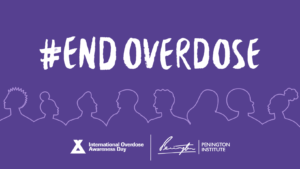National Military Appreciation Month
Supporting Homeless Veterans with a Substance Use Disorder
Donna Marston CRSW
In 1999 Congress designated May as National Military Appreciation Month to honor the service and sacrifice of service members and their families.
In honor of National Military Appreciation Month, let’s shed light on homeless veterans grappling with addiction. These courageous individuals, who once wore military uniforms and stood on the front lines, now face a different battle—one against homelessness and the chains of addiction.
Our veterans are often forgotten heroes, they served their country with unwavering dedication and too often they slip through the gaps and their sacrifice for their country is dismissed.
Veterans, having sacrificed so much, deserve our unwavering support. When they return home from service, as a country we must make sure that they receive the assistance they need to reintegrate into civilian life successfully

Standing at a freeway exit with a cardboard sign is an unfortunate reality faced by some veterans who find themselves without stable housing or support. Veterans often face unique challenges, including mental health issues, physical disabilities, and difficulties transitioning back to civilian life. These struggles can contribute to homelessness among this population.
Efforts to address veteran homelessness include providing housing assistance, mental health services, and job training. Organizations and communities work tirelessly to support veterans and prevent situations where they have to resort to standing at freeway exits with cardboard signs.
On average, veterans experience nearly six years of homelessness, compared to four years for non-veterans. After serving in the military, some veterans face addiction, which adds to their challenges. Homelessness can result from various factors, including combat trauma (such as PTSD), the transition to civilian life, lack of family support, affordable housing shortages, and limited social networks. Additionally, military skills and training don’t always directly translate to civilian jobs, putting some veterans at a disadvantage when seeking employment.
Outreach services can connect homeless veteran’s with resources, hope, and a sense of belonging.
The Department of Military Affairs and Veterans Services lists available resources, directories, and forms for New Hampshire’s Veterans, Service Members and their families to utilize for information regarding Military benefits and health care. https://www.dmavs.nh.gov/veterans-services/helpful-veteran-information
- Harbor Care Veterans First Supportive Services for Veteran Families helps those at immediate risk of homelessness.
- Soldiers Angels provide aid, comfort and resources to military, Veterans and their families.
- National Resource Directory is a database of validated resources that supports recovery, rehabilitation, and reintegration for service members, veterans, family members, and caregivers.
Addressing the underlying issues faced by veterans requires a multifaceted approach. Here are strategies that can help tackle financial insecurity and expand job training opportunities:
- Provide veterans with financial literacy education. Teach them about budgeting, saving, and managing debt.
- Expand housing voucher programs to ensure veterans have stable housing.
- Encourage landlords to participate in housing programs and offer affordable rental options.
- Develop specialized job training programs for veterans based on their military skills and interests.
- Help veterans obtain industry-specific certifications and credentials.
- Promote apprenticeship programs that provide hands-on experience and lead to employment.
- Create networking events where veterans can connect with employers and fellow veterans.
- Pair transitioning service members with experienced mentors in their desired fields.
- Encourage employers to hire veterans by offering tax incentives.
- Help employers understand how military skills translate to civilian roles.
- Provide resources and training for veterans interested in starting their own businesses.
- Advocate for policies that support veterans’ financial stability and job prospects.
- Work with agencies like the Department of Veterans Affairs to streamline services.
Supporting veterans isn’t merely a duty; it’s a profound call to recognize their sacrifices and ensure they receive the care and dignity they deserve. It’s an investment in our nation’s future. By addressing financial insecurity and enhancing job training, we empower those who have selflessly sacrificed for us.
When we support homeless veterans dealing with substance use disorder, we honor their service and work toward a brighter future for those who’ve given so much for our country. Let’s ensure they receive the care and assistance they deserve not only during National Military Appreciation Month but also beyond.
Our commitment to veterans should extend beyond words; it should manifest in meaningful actions. Together, we can create a compassionate and supportive environment that truly leaves no veteran behind. Compassion and empathy are essential when considering the plight of homeless veterans. Let’s continue advocating for better support systems and resources to ensure that no veteran has to face homelessness ever again.



